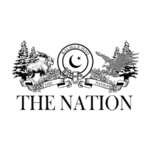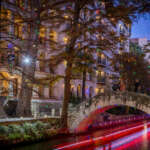A Closer Look at Brazil
Brazil Flag

Brazil Formation Date
September 7, 1822
Brazil Capital Name
Brasília
Brazil Neighbours
Exploring Brazil
Exploring the Vibrant Culture and Rich History of Brazil
Located in South America, Brazil is the fifth largest country in the world by both land area and population. It is a diverse and dynamic nation with a fascinating history, vibrant culture, and breathtaking natural landscapes. As a cultural commentator and travel writer, I invite you to join me on a journey to discover the wonders of Brazil.Key Takeaways:
- Brazil is the largest country in South America and the fifth largest in the world.
- The country has a rich history and diverse culture influenced by indigenous, European, African, and Asian cultures.
- Brazil is known for its stunning natural landscapes, including the Amazon rainforest, beautiful beaches, and vibrant cities.
- The country has a strong economy and is a major player in global trade.
- Brazil is home to a diverse population with various ethnicities, languages, and religions.
Geography:
Brazil is a vast country with diverse physical features. The Amazon rainforest covers about 60% of the country's land area, making it the largest rainforest in the world. The country also has several mountain ranges, including the Serra do Mar and Serra do Espinhaço. The coastline stretches over 7,000 kilometers and is home to some of the world's most beautiful beaches. The natural resources of Brazil are abundant and varied. The country is one of the world's top producers of agricultural products such as coffee, soybeans, and sugar cane. It also has significant reserves of minerals like iron ore, bauxite, and gold. Brazil's climate varies from region to region but is mostly tropical or subtropical. The country experiences high temperatures throughout the year, with the average temperature being around 25°C. The northern region has a rainy season from December to May, while the southern region experiences more temperate weather.Origin and History:
Brazil's history dates back thousands of years, with evidence of human settlements dating back to 9000 BC. The country was first inhabited by indigenous tribes, including the Tupi and Guarani people. In the 16th century, Portuguese explorers arrived in Brazil and claimed it as a colony. The country gained its independence from Portugal in 1822 and became a republic in 1889. Throughout its history, Brazil has experienced periods of colonization, slavery, and political instability. However, it has also seen significant economic growth and cultural development. Today, Brazil is a thriving nation with a diverse population and a rich cultural heritage.Government and Politics:
Brazil is a federal presidential constitutional republic with a multi-party system. The government is divided into three branches: executive, legislative, and judicial. The country is divided into 26 states and one federal district, each with its own governor or mayor. Brazil has diplomatic relations with countries all over the world and is an active member of international organizations such as the United Nations and the World Trade Organization. It shares borders with ten other South American countries and has strong geopolitical relationships with its neighbors.Commerce and Economy:
Brazil has one of the largest economies in the world, driven by various sectors such as agriculture, manufacturing, and services. It is a major player in global trade, exporting commodities like soybeans, iron ore, and oil. The country also has a growing service industry, including tourism, banking, and technology. The official currency of Brazil is the Brazilian Real (BRL), which is used for all transactions within the country. The exchange rate for BRL to USD is currently around 5.5 BRL to 1 USD.Demographics:
Brazil has a diverse population of over 212 million people, making it the sixth most populous country in the world. The majority of the population is of mixed European, African, and indigenous descent. However, there are also significant populations of people with Italian, German, Japanese, and Middle Eastern heritage. The official language of Brazil is Portuguese, but there are also many regional dialects spoken throughout the country. In addition to Portuguese, English and Spanish are also widely spoken.Culture:
Brazil's culture is a vibrant mix of indigenous, European, African, and Asian influences. The country is known for its colorful festivals, lively music, and delicious cuisine. Some popular cultural events include Carnival, a massive celebration held before Lent, and Festa Junina, a traditional festival held in June. Brazil is also home to a thriving art scene, with renowned artists such as Candido Portinari and Tarsila do Amaral. Music is an integral part of Brazilian culture, with genres like samba, bossa nova, and forró originating from the country.Languages and Religion:
As mentioned earlier, Portuguese is the official language of Brazil. However, there are also many regional dialects spoken throughout the country. In addition to Portuguese, English and Spanish are also widely spoken. Brazil is a predominantly Christian country, with over 86% of the population identifying as Catholic or Protestant. Other religions practiced in Brazil include Spiritism, Candomblé, and Umbanda.Education and Healthcare Systems:
Brazil has made significant progress in improving its education system in recent years. The country has a literacy rate of over 93%, with primary and secondary education being compulsory for all children aged 6-14 years old. There are also many prestigious universities in Brazil, including the University of São Paulo and the Federal University of Rio de Janeiro. Brazil has a universal healthcare system that provides free healthcare to all citizens. The country has made significant strides in improving public health, with initiatives such as vaccination programs and efforts to combat diseases like HIV/AIDS and malaria.Sports and Recreation:
Brazil is known for its love of sports, with football (soccer) being the most popular sport in the country. Brazil has won the FIFA World Cup five times, making it the most successful team in the tournament's history. Other popular sports in Brazil include volleyball, basketball, and Formula One racing. The country also has stunning natural landscapes that offer endless opportunities for outdoor activities such as hiking, surfing, and wildlife watching.Tourism:
Brazil is a top tourist destination, attracting millions of visitors each year. The country offers a diverse range of attractions, from stunning beaches to vibrant cities and breathtaking natural wonders. Some must-visit places include Rio de Janeiro, known for its iconic Christ the Redeemer statue and Carnival celebrations, and the Amazon rainforest, home to an incredible array of plant and animal species. Brazil also has excellent tourism infrastructure, with a wide range of accommodation options, transportation services, and tour companies to choose from.Travel Information for Foreign Visitors:
If you are planning a trip to Brazil, there are a few essential things you need to know. Firstly, most foreign visitors require a visa to enter the country. You can apply for a visa at your nearest Brazilian embassy or consulate. Health and safety should also be a top priority when traveling to Brazil. It is recommended to get vaccinated against diseases like yellow fever and take precautions against mosquito-borne illnesses. It is also essential to be aware of your surroundings and avoid traveling alone in certain areas. When it comes to local customs and etiquette, Brazilians are generally friendly and welcoming. However, it is important to be respectful of their culture and avoid sensitive topics like politics and religion.Quotes:
- "Brazil is not for beginners." - Antonio Carlos Jobim
- "Brazil is a country of contradictions, but it is also a place of immense beauty." - Rodrigo Santoro
- "Brazil is a nation of diversity, where people of different backgrounds come together to create something truly unique." - Pelé
Conclusion:
In conclusion, Brazil is a country that offers a unique blend of natural beauty, rich history, and vibrant culture. From its stunning landscapes to its diverse population and thriving economy, there is no shortage of things to discover in this South American gem. As the country continues to develop and evolve, it will undoubtedly remain a top destination for travelers from all over the world. So pack your bags and get ready to experience the wonders of Brazil for yourself.Brazil Highest Point Name
The highest point in Brazil is Pico da Neblina, which is located in the Itatiaia National Park in the Serra do Mar range near the Venezuelan and Colombian borders. It has an elevation of 2,994 meters (9,823 feet).
Brazil Capital Longitude
Brasília is the capital of Brazil and its geographical coordinates are 15° 47' 55.99" S, 47° 52' 45.72" W.
Brazil Capital Latitude
Brasília is the capital of Brazil, and its latitude is 15.7801° S.
Brazil Official Languages
The official language of Brazil is Portuguese.
Brazil Ethnic Groups
Brazil is a very ethnically diverse nation with many different ethnic groups present. The largest ethnic groups in the country are the Portuguese, who have been present since colonial times, followed by those of Italian, German, Spanish, African, and Indigenous descent. There is also a mix of Asian, Arab, and Jewish populations. Afro-Brazilians make up the largest population of African descent in the country, while the Amerindian population is the largest of indigenous peoples. Overall, the country is made up of a rich mix of people and cultures, reflecting its long and complex history.
Brazil Religions
Brazil is known for its religious diversity. Approximately 64 percent of the population is Roman Catholic, while 22 percent report no religious affiliation. Protestantism - mainly Pentecostalism and Evangelicalism - is growing rapidly, now claiming 15 percent of the population. A variety of other Christian denominations, including the Church of Jesus Christ of Latter-Day Saints, and various spiritist and Afro-Brazilian religions make up the remaining population. Judaism, Islam and Buddhism are also practiced in the country, though it is mainly make up the foreign national communities.
Brazil Total Area
The total area of Brazil is 8,515,767 sq km (3,287,597 sq mi).
Brazil Land Area
The land area of Brazil is 8,515,767 square kilometers (3,287,469 square miles).
Brazil Water Area
According to the Brazilian Institute of Geography and Statistics (IBGE, 2020), Brazil's total water area is 8.511366 million km2. This represents 10.7% of Brazil's total land area (79.790 km2).
Brazil Total Population
Brazil country today population 210,000,000
Brazil Currency Name
The currency of Brazil is the Real (BRL).
Brazil Currency Code
The currency code for Brazil is BRL.
Brazil Currency Symbol
The country's currency is the Brazilian Real, and its symbol is R$
Brazil Time Zones
- UTC-03:00
Brazil uses a single time zone across its continental area, denoted by the UTC-3 time zone. Standard time remains constant across the country, with no observance of daylight saving time. This means there is no shift forward by an hour. Brazil is located in a subtropical climate, so the solar noon does not vary significantly throughout the year.
Brazil Calling Code
+55
Brazil Internet TLD
www.aveholidays.br
How to Say "Brazil" In Different Languages?
- Pashto
- برازيل (ps-AF)
- Chinese
- 巴西 (zh-CN)
- Arabic
- برازيل (ar-EG)
- French
- Brésil (fr-FR)
- German
- Brasilien (de-DE)
- Hindi
- ब्राज़ील (hi-IN)
- Persian
- برزیل (fa-IR)
- Italian
- Brasile (it-IT)
- Japanese
- ブラジル (ja-JP)
- Kazakh
- Бразилия (kk-KZ)
- Korean
- 브라질 (ko-KR)
- Spanish
- Brasil (es-ES)
- Berber
- ⴱⵔⴰⵣⵉⵍ (ary-MA)
- Polish
- Brazylia (pl-PL)
- Portuguese
- Brasil (pt-PT)
- Russian
- Бразилия (ru-RU)
- Thai
- บราซิล (th-TH)
- Turkish
- Brezilya (tr-TR)
- Ukrainian
- Бразилія (uk-UA)
- Vietnamese
- Bra-xin (vi-VN)
Brazil Popular Holidays
- New Year's Day
- 1 January
- Epiphany
- 6 January
- Universal Fraternity Day
- 7 January
- Saint Sebastian's Day
- 20 January
- Day of Prayer for Peace
- 20 January
- Senhor do Bonfim Day
- 2 February
- (Yemanjá) Day
- 2 February
- Samba Day
- 2 February
- Senhor do Bonfim Procession
- 3 February
- Valentine's Day
- 14 February
- Carnival
- 25 February (3 March)
- Shrove Tuesday
- 9 March
- Saint Joseph's Day
- 19 March
- Good Friday
- 2 April
- Good Saturday
- 3 April
- Easter Sunday
- 4 April
- Easter Monday
- 5 April
- Passover
- 19 April
- Tiradentes Day
- 21 April
- National Labor Day
- 1 May
- Bom Jesus dos Navegantes Day
- 6 May
- National Pantheon Day
- 13 May
- Corpus Christi
- 20 May
- Corpus Christi Procession
- 21 May
- Corpus Christi
- 22 May
- Festa do Divino
- 24 May
- Saint Anthony's Day
- 13 June
- Saint John's Day
- 24 June
- Sao Joao Day
- 24 June
- Sao Pedro's Day
- 29 June
- Saint Peter and Saint Paul Day
- 29 June
- Saint Lawrence's Day
- 10 August
- Assumption of Mary
- 15 August
- Saint Joachim's Day
- 16 August
- Saint Roch's Day
- 16 August
- Our Lady of Good End Day
- 17 August
- Independence Day
- 7 September
- Emperor's Day
- 7 September
- Bom Jesus da Lapa Day
- 21 September
- Mother's Day
- 12 October
- Our Lady Of Aparecida Day
- 12 October
- Our Lady of Penha Chapel
- 14 October
- Apocalypse Day
- 1 November
- All Saint's Day
- 2 November
- Republic Day
- 15 November
- Republic Proclamation Day
- 15 November
- Proclamation of the Republic
- 15 November
- White Tuesday
- 16 November
- National Sovereignty Day
- 18 November
- Flag Day
- 19 November
- Saint John's Conspiracy
- 20 November
- Maria Aparecida Day
- 29 November
- Our Lady of Conception Day
- 8 December
- Immaculate Conception Day
- 8 December
- Christmas
- 25 December
- Holy Innocents' Day
- 28 December
- Year's Eve
- 31 December









